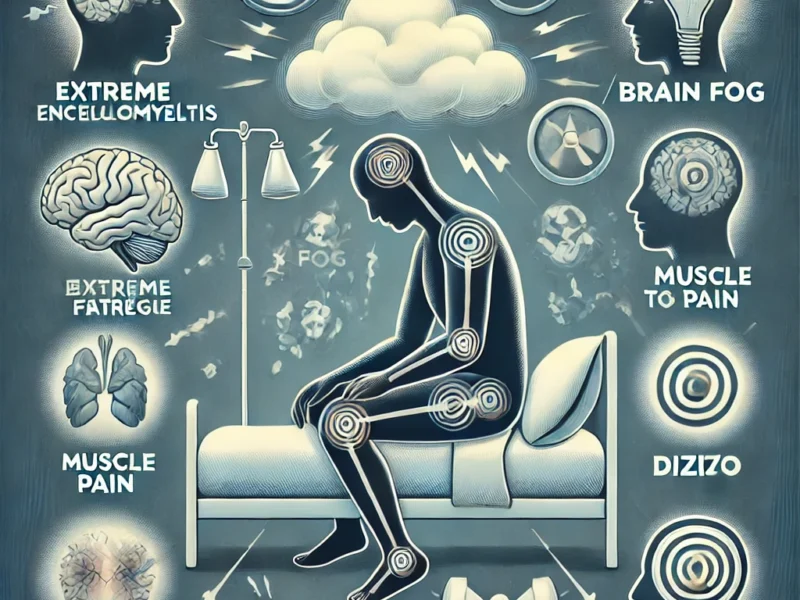
- Supplements to Balance Hormones and Lose Weight: Treatments & Hope
- Understanding Hormonal Imbalance and Weight Gain
- Key Supplements for Hormonal Balance
- How Supplements to Balance Hormones
- Lifestyle Tips for Hormonal Balance and Weight Loss
- Specific Hormonal Imbalances and Supplement Strategies
- Integrative Approaches to Hormonal Balance
- Supplements to Balance Hormones and Lose Weight: Fact vs. Fiction
- Conclusion
Supplements to Balance Hormones and Lose Weight: Treatments & Hope
Supplements to Balance Hormones and Lose Weight: Hormonal imbalances can significantly affect your ability to maintain a healthy weight. Fortunately, certain supplements can help restore balance and support weight loss efforts. This comprehensive article explores some of the most effective supplements, their benefits, and how they contribute to hormonal health and weight management.
Understanding Hormonal Imbalance and Weight Gain
Hormones like insulin, cortisol, leptin, and ghrelin play crucial roles in regulating metabolism and appetite. Imbalances in these hormones can lead to weight gain and difficulty losing weight. For instance, high cortisol levels, often due to stress, can increase belly fat, while insulin resistance can lead to higher blood sugar levels and fat storage.
Insulin and Weight Gain
Insulin is a hormone produced by the pancreas that regulates blood sugar levels. When cells become resistant to insulin, more insulin is produced, leading to high blood sugar levels and increased fat storage, particularly around the abdomen. Managing insulin levels is crucial for weight control.
Cortisol and Stress
Cortisol, known as the stress hormone, can lead to weight gain when levels are chronically high. Elevated cortisol levels increase appetite and cravings for unhealthy foods, contributing to weight gain. Managing stress through lifestyle changes and supplements can help maintain healthy cortisol levels.
Leptin and Ghrelin
Leptin is a hormone that helps regulate appetite and energy balance by inhibiting hunger. Ghrelin, on the other hand, stimulates appetite. An imbalance in these hormones can lead to increased hunger and weight gain. Maintaining a balance between leptin and ghrelin is essential for weight management.
Key Supplements for Hormonal Balance
- Magnesium:
Magnesium is essential for numerous bodily functions, including hormone production. It helps regulate insulin and thyroid hormones, which are vital for metabolism. Adequate magnesium levels enhance insulin sensitivity and support stable blood sugar levels, preventing weight gain associated with insulin resistance. Foods rich in magnesium include dark leafy greens, nuts, seeds, and whole grains. - Vitamin D:
Vitamin D plays a significant role in regulating insulin, leptin, and cortisol levels. Maintaining adequate vitamin D levels supports insulin sensitivity, helps control appetite, and reduces the impact of stress on weight gain. Sun exposure and supplements can help achieve optimal vitamin D levels. - Omega-3 Fatty Acids:
Omega-3s are essential fats that help reduce inflammation and support hormonal balance. They are particularly beneficial for those with thyroid dysfunction, adrenal insufficiency, and polycystic ovary syndrome (PCOS). Fish oil is a common source of omega-3 supplements. - Vitamin B Complex:
B vitamins, including B6, B12, and folate, are crucial for energy metabolism and hormone synthesis. They help convert food into energy and support the production of hormones like insulin and thyroid hormones. Good sources include lean meats, eggs, dairy products, legumes, and leafy greens. - Zinc:
Zinc is vital for hormone synthesis and regulation. It supports the production and function of insulin, thyroid hormones, and sex hormones. Zinc supplements can help rebalance cortisol, estrogen, and progesterone levels, and improve insulin sensitivity. Foods rich in zinc include meat, shellfish, legumes, and seeds. - Vitex Agnus-Castus (Chasteberry):
Vitex helps regulate menstrual cycle symptoms and balance estrogen, progesterone, and prolactin levels. It is particularly beneficial for premenstrual syndrome (PMS) and other female reproductive disorders. - Rhodiola Rosea:
An adaptogenic herb, Rhodiola helps balance cortisol levels and support adrenal function, which can reduce stress-related hormone imbalances. - Milk Thistle:
Known for its liver-supporting properties, milk thistle helps detoxify the liver, where many hormones are metabolized. This support can help maintain hormone balance and reduce toxin accumulation that may disrupt hormonal health.
How Supplements to Balance Hormones
Regulating Insulin Levels
Supplements like magnesium and omega-3 fatty acids help improve insulin sensitivity, reducing the risk of insulin resistance. By enhancing the body’s ability to use insulin efficiently, these supplements help control blood sugar levels and prevent excess fat storage.
Managing Cortisol
Adaptogens like Rhodiola Rosea and nutrients like vitamin D can help regulate cortisol levels. These supplements support the adrenal glands, which produce cortisol, thereby helping to reduce stress and its associated weight gain.
Supporting Thyroid Function
The thyroid gland produces hormones that regulate metabolism. Nutrients like iodine, selenium, and zinc are essential for thyroid health. These supplements ensure the thyroid gland functions optimally, supporting a healthy metabolism and weight management.
Balancing Sex Hormones
Hormonal imbalances can affect estrogen, progesterone, and testosterone levels, leading to weight gain and other symptoms. Supplements like Vitex and zinc help balance these hormones, reducing symptoms of PMS, menopause, and other hormonal disorders.

Lifestyle Tips for Hormonal Balance and Weight Loss
- Healthy Diet:
Incorporate a balanced diet rich in whole foods, including lean proteins, healthy fats, and plenty of fruits and vegetables. Avoid processed foods and sugars, which can disrupt hormone balance. Foods high in fiber can also help regulate blood sugar levels and improve insulin sensitivity. - Regular Exercise:
Physical activity helps regulate hormones like insulin and cortisol. Aim for a mix of cardio, strength training, and flexibility exercises. Exercise can also help reduce stress, which is beneficial for maintaining healthy cortisol levels. - Adequate Sleep:
Poor sleep can disrupt the production of hormones such as leptin and ghrelin, which regulate hunger and appetite. Aim for 7-9 hours of quality sleep per night. Good sleep hygiene practices, such as maintaining a regular sleep schedule and creating a restful environment, can support better sleep. - Stress Management:
Chronic stress elevates cortisol levels, leading to weight gain. Practices such as mindfulness, meditation, and yoga can help reduce stress and maintain hormonal balance. Regular relaxation techniques can also support adrenal health and overall hormonal function.
Specific Hormonal Imbalances and Supplement Strategies
Estrogen Dominance
Estrogen dominance occurs when there is too much estrogen relative to progesterone. This imbalance can lead to weight gain, particularly in the hips and thighs, as well as other symptoms like mood swings and heavy periods. Supplements like DIM (diindolylmethane), found in cruciferous vegetables, can help metabolize and balance estrogen levels.
Low Testosterone
Low testosterone levels can lead to decreased muscle mass and increased fat accumulation, particularly in men. Supplements such as zinc and magnesium support testosterone production. Additionally, lifestyle changes like resistance training and ensuring adequate sleep can help maintain healthy testosterone levels.
Hypothyroidism
Hypothyroidism, or an underactive thyroid, slows down metabolism and can cause weight gain. Selenium and iodine are crucial for thyroid hormone production. Supplementing with these nutrients can support thyroid health and improve metabolic rate, aiding weight loss.
Integrative Approaches to Hormonal Balance
Combining Supplements with Diet and Lifestyle
While supplements can play a significant role in balancing hormones, they work best when combined with a healthy diet and lifestyle. For instance, a diet rich in whole foods, regular exercise, stress management, and adequate sleep are foundational to hormonal health. Supplements can enhance these efforts by providing specific nutrients that might be lacking or needed in higher amounts due to hormonal imbalances.
Personalized Supplement Plans
Everyone’s hormonal profile is unique, and what works for one person may not work for another. It’s essential to consult with a healthcare provider to develop a personalized supplement plan based on individual needs and hormone levels. Blood tests and other diagnostic tools can help identify specific hormonal imbalances and tailor supplement recommendations accordingly.
Supplements to Balance Hormones and Lose Weight: Fact vs. Fiction
Many supplements claim to balance hormones and promote weight loss, but the reality can be more complex. Here’s a breakdown to help you navigate this information:
- Balancing Hormones: Some supplements contain vitamins, minerals, and herbs that may support hormonal health. However, the effectiveness often depends on the individual and the root cause of the hormonal imbalance. Consulting a doctor to identify any underlying issues is crucial.
- Supplements and Weight Loss: While some ingredients might enhance metabolism or curb appetite, their impact on weight loss is often modest. A sustainable and healthy approach to weight loss focuses on diet, exercise, and lifestyle changes.
Here are some key considerations:
- Limited Evidence: Many supplement claims lack strong scientific backing. Consult reliable sources and be wary of miracle cures.
- Dosage Matters: Hidden ingredient amounts in supplements can make it difficult to assess their effectiveness.
- Potential Side Effects: Some ingredients may interact with medications or have side effects.
What to Do Instead:
- Focus on a Healthy Diet: Prioritize whole, unprocessed foods, fruits, vegetables, and lean protein for optimal hormone function and weight management.
- Exercise Regularly: Physical activity helps regulate hormones and boosts metabolism.
- Consult a Doctor: Discuss any hormonal concerns or weight loss goals with a doctor for personalized advice.
Remember: Supplements can be a part of a healthy lifestyle, but they’re not a magic bullet. Prioritize a balanced diet, exercise, and address any underlying medical issues for long-term success.
Conclusion
Balancing hormones is key to achieving and maintaining a healthy weight. Supplements like magnesium, vitamin D, omega-3 fatty acids, B vitamins, zinc, Vitex, Rhodiola, and milk thistle can support hormonal health and weight management. Coupled with a healthy lifestyle, these supplements offer a comprehensive approach to balancing hormones and promoting weight loss.
For further reading on hormone balance and weight loss, you can explore resources such as Women’s Health Network, Verywell Fit, and Vibrant Vitality Clinic.
By incorporating these strategies, you can take proactive steps towards better hormonal health and effective weight management. With the right balance of supplements and lifestyle choices, achieving and maintaining a healthy weight becomes a more attainable goal. Remember, hormonal health is a journey, and with the right tools and support, you can navigate it successfully.
Continue Reading : Supplements to Balance Hormones and Lose Weight


One thought on “Supplements To Balance Hormones and Lose Weight: Unveiling the Truth”